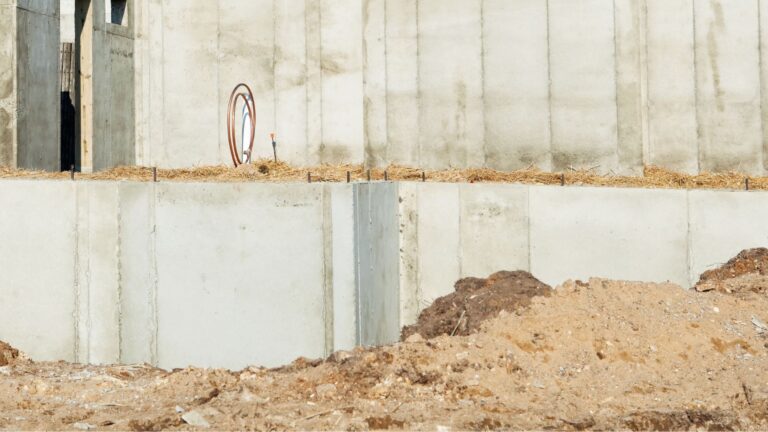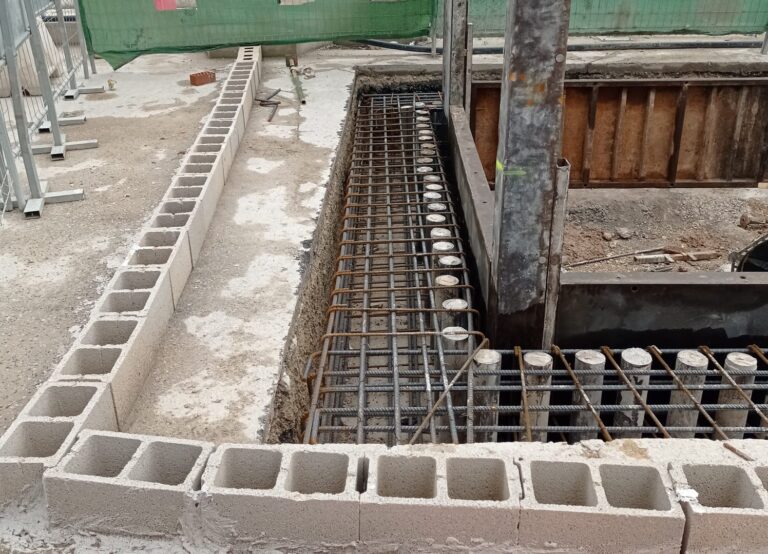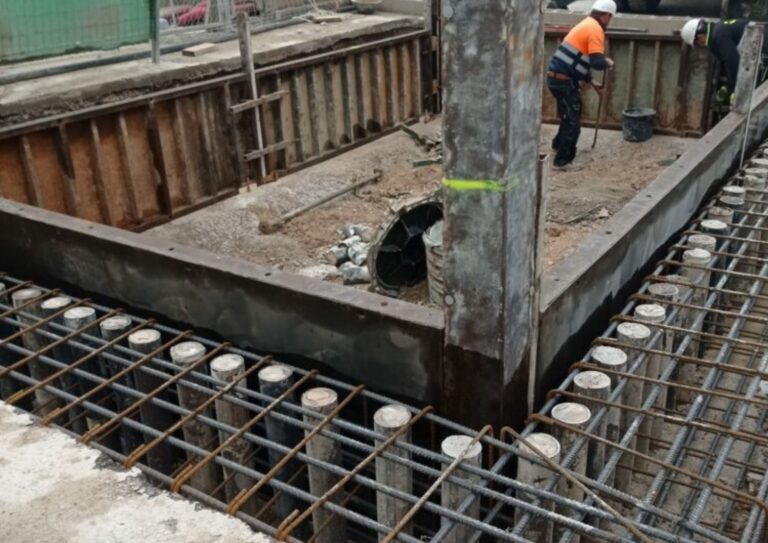Diaphragm walls in Barcelona: Key solutions for underground construction and urban rehabilitation
The diaphragm walls in Barcelona They are one of the most effective and versatile solutions in modern construction, especially when it comes to projects involving deep excavations, such as the construction of basements. In both new construction and the renovation of existing buildings, diaphragm walls play a fundamental role in stabilising the ground and protecting adjacent structures. In densely populated cities, such as Barcelona, their use has become essential due to the scarcity of space and the need to optimise the available land.
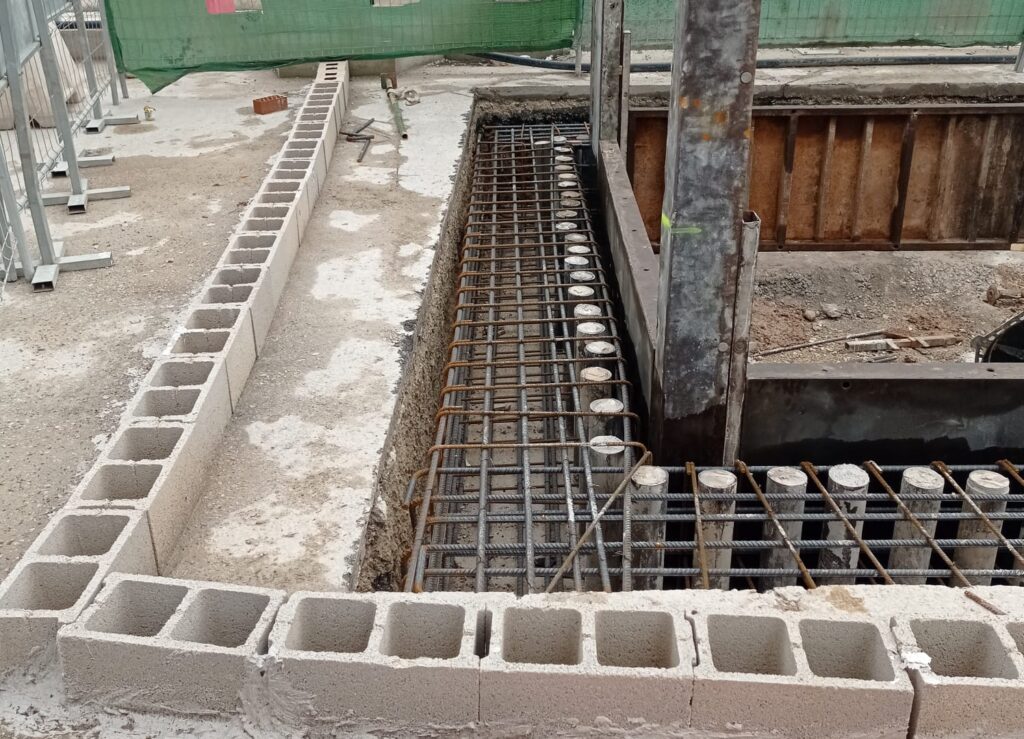
What are diaphragm walls?
A diaphragm wall in Barcelona Diaphragm walls are a retaining structure that is usually built continuously around the perimeter of an excavation. Its main function is to withstand lateral pressures from the ground and water, allowing deep excavations to be carried out safely. Diaphragm walls are made of reinforced or precast concrete and are used in a wide variety of projects, from the construction of basements and underground parking lots to infrastructure works such as tunnels and subway stations.
Application in the execution of basements
When constructing basements, diaphragm walls are essential to ensure the stability of the excavation. During the construction of a new building or the rehabilitation of an existing one, it is common to need to excavate below ground level. This process presents significant risks, such as the collapse of the excavation walls or the displacement of the ground, which could compromise the safety of both the project in progress and nearby buildings.
In new construction projects, the screen walls in Barcelona They allow excavations to be made deeper without the risk of collapse or water seepage, and also provide temporary or permanent support for the structural loads of the building. In the rehabilitation of existing buildings, their use is equally critical. In these cases, it is common to need to create new basements to increase the capacity of the building or improve its functionality, such as in the installation of underground parking or warehouses.
In places like Barcelona, where space for new construction is limited, diaphragm walls make it possible to make the most of already occupied land by excavating underground without putting neighbouring buildings at risk.
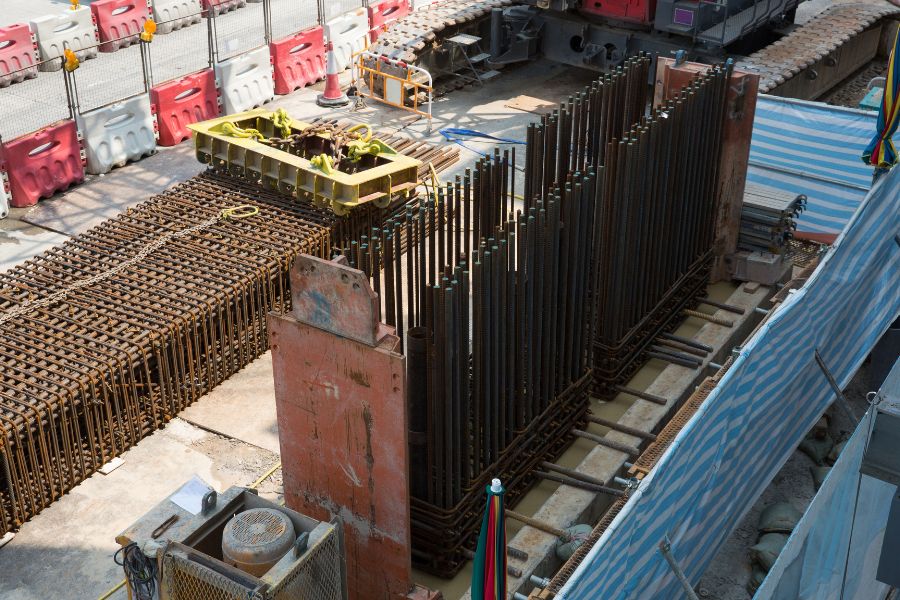
Types of diaphragm walls and their implementation
There are different types of diaphragm walls that can be used in the construction of basements, depending on the type of soil, the depth of the excavation and the characteristics of the project. Among the most common are:
In-situ diaphragm walls: These are built directly on the construction site by excavating trenches and then placing reinforced concrete. This type is ideal for large-scale projects or when greater structural strength is required.
Precast diaphragm walls: These are concrete panels that are manufactured off-site and then installed in the excavation. They are quicker to place and are effective in projects where time is a crucial factor.
In both cases, the choice of diaphragm wall type will depend on geotechnical factors, space availability and project budget.
Advantages in new construction and rehabilitation
The use of screen walls in Barcelona offers multiple advantages both in the construction of new buildings and in rehabilitation projects. Among the main ones are:
- Structural Safety: Diaphragm walls provide strong and safe containment, allowing excavation to greater depths without risk of collapse.
- Waterproofing: In areas with a high presence of groundwater, diaphragm walls prevent leaks and protect basements from possible flooding.
- Space optimization: In urban environments such as Barcelona, where space is limited, diaphragm walls allow the subsoil to be used to create new levels without affecting nearby structures.
Diaphragm walls in Barcelona: Ideal solution for the urban environment
In a city like Barcelona, where space constraints and the proximity of historic buildings make underground construction particularly challenging, diaphragm walls have become an indispensable solution. Their ability to contain the ground and prevent damage to adjacent buildings is key in projects to rehabilitate old buildings, allowing new basements to be created without compromising structural integrity.
In addition, the diaphragm walls in Barcelona They are essential in the creation of modern infrastructures such as underground parking lots or metro systems. Thanks to this technique, it is possible to maximize the use of space in densely populated urban areas, optimizing the development of both public and private projects.
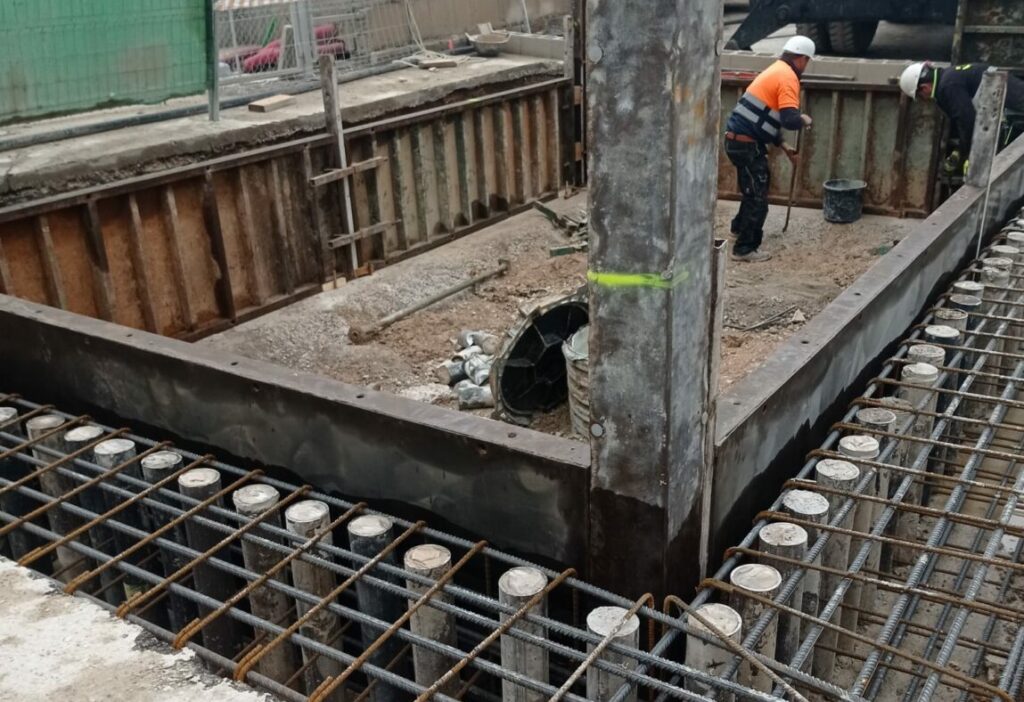
The screen walls in Barcelona They are an efficient and versatile solution for the construction of basements in new construction and renovation projects. In cities such as Barcelona, where underground construction challenges are significant, these walls offer safe containment, space optimization and protection against water infiltration, making it possible to develop innovative projects in complex urban environments.

